In the heart of Delaware County, PA, where boilers are a staple in many homes, a common question arises each summer: “Should I turn off my gas boiler pilot light?” This query is more than a matter of routine maintenance—it’s about optimizing energy efficiency and ensuring safety. At McGinley Services, experts in boiler repair and replacement, we understand the intricacies of this decision and are here to offer our guidance.
Weighing the Benefits and Drawbacks
Energy Savings
Turning off your pilot light can result in energy savings. While the pilot light consumes a relatively small amount of gas, eliminating this usage over several months can add up.
Enhanced Safety
With the pilot light off, you eliminate a continuous flame, which, albeit small, poses a minimal risk of ignition when not in use.
However, there are considerations to bear in mind:
Potential for Moisture Buildup
In some boilers, the absence of a pilot light can lead to moisture accumulation, potentially damaging internal components.
Relighting Challenges
Come fall, relighting the pilot can be a hassle, especially for those not familiar with the process. This could necessitate professional boiler repair services.
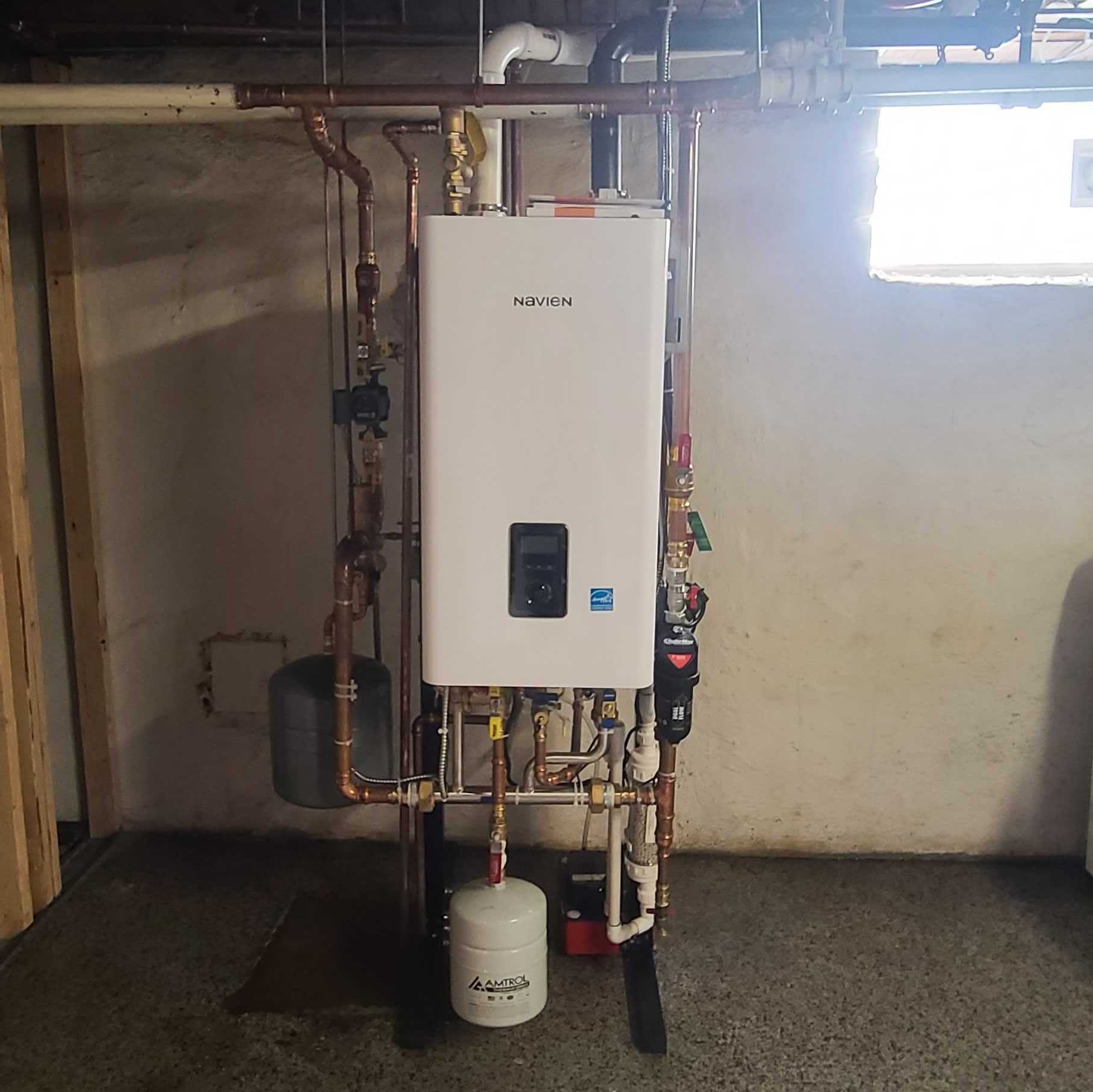
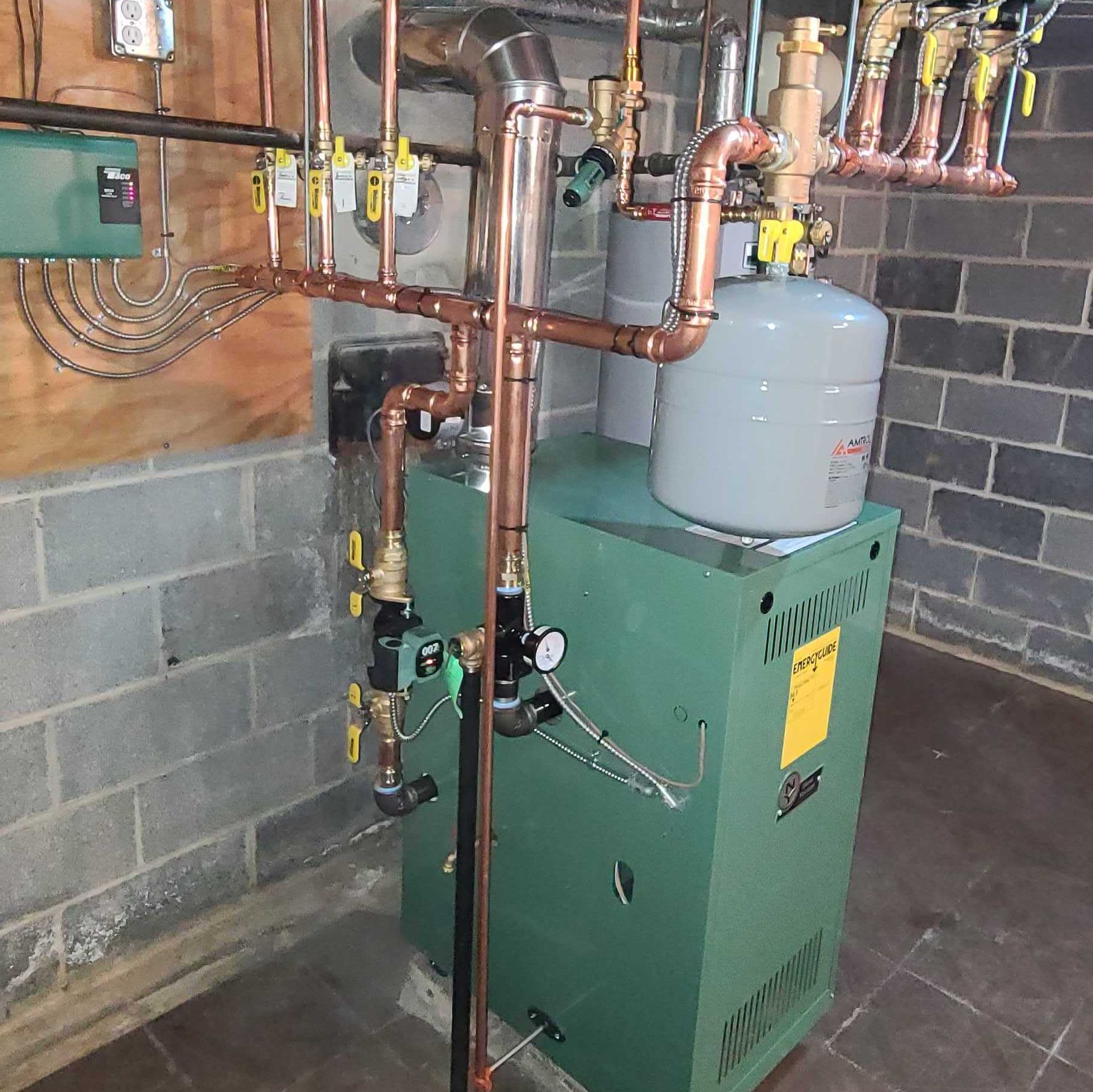
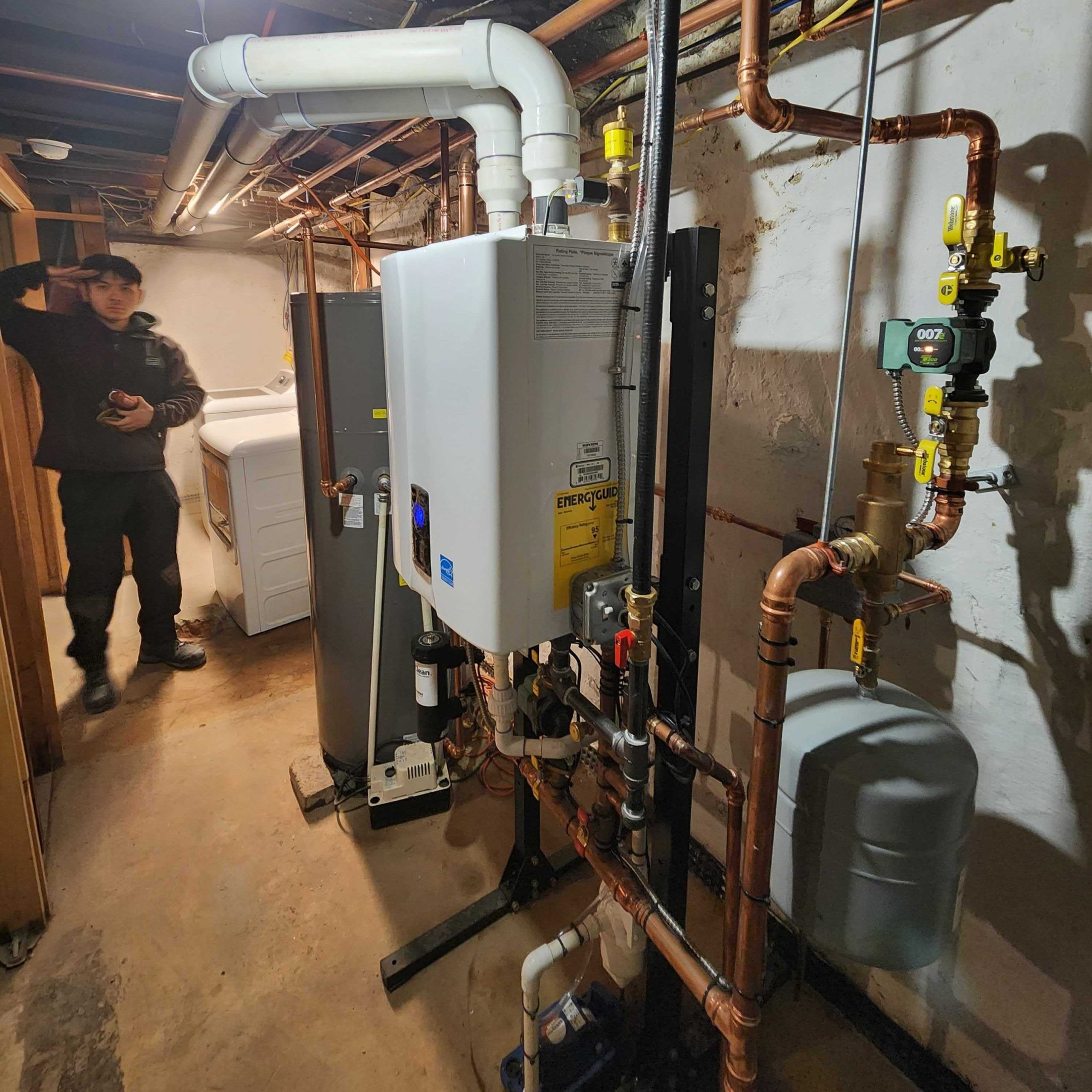
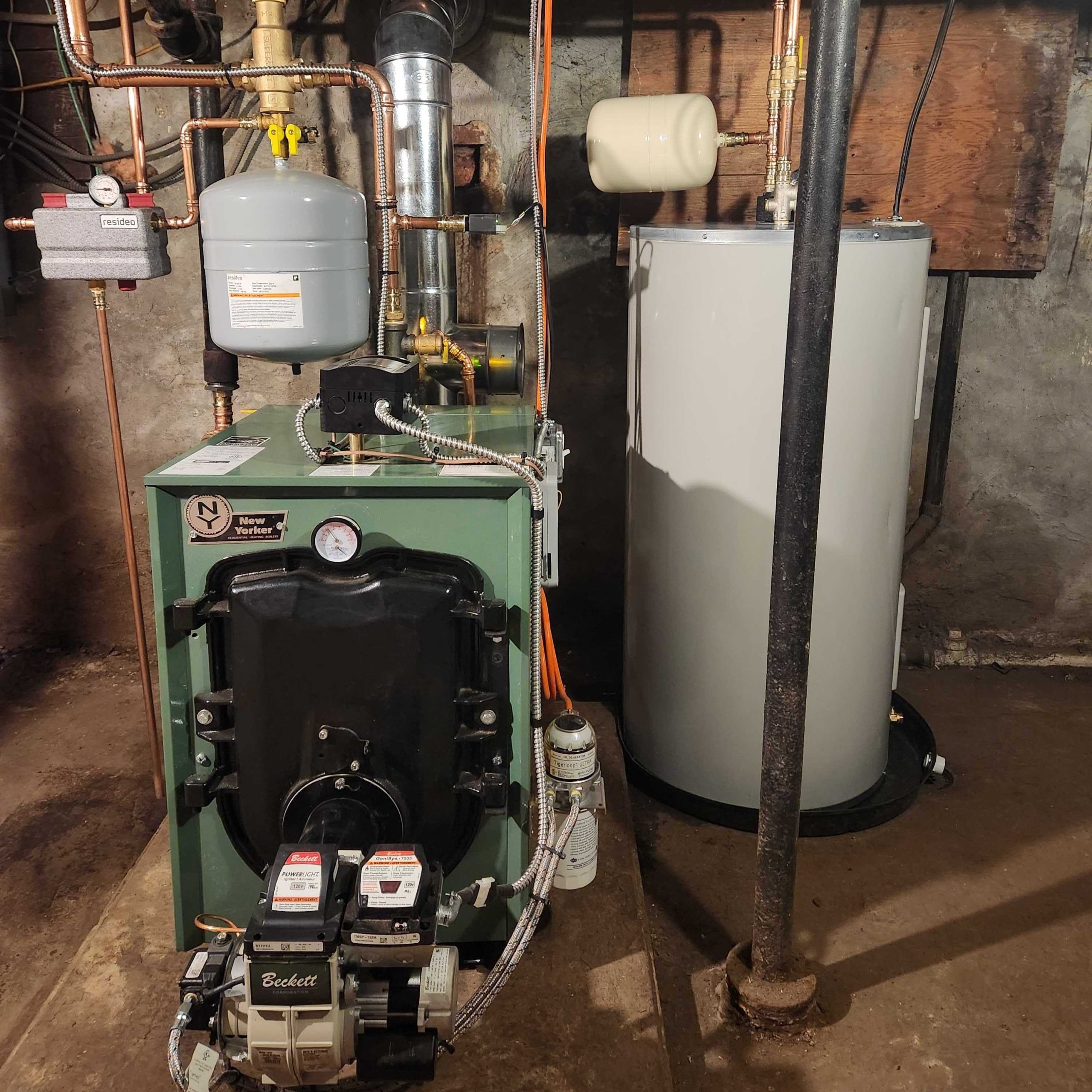
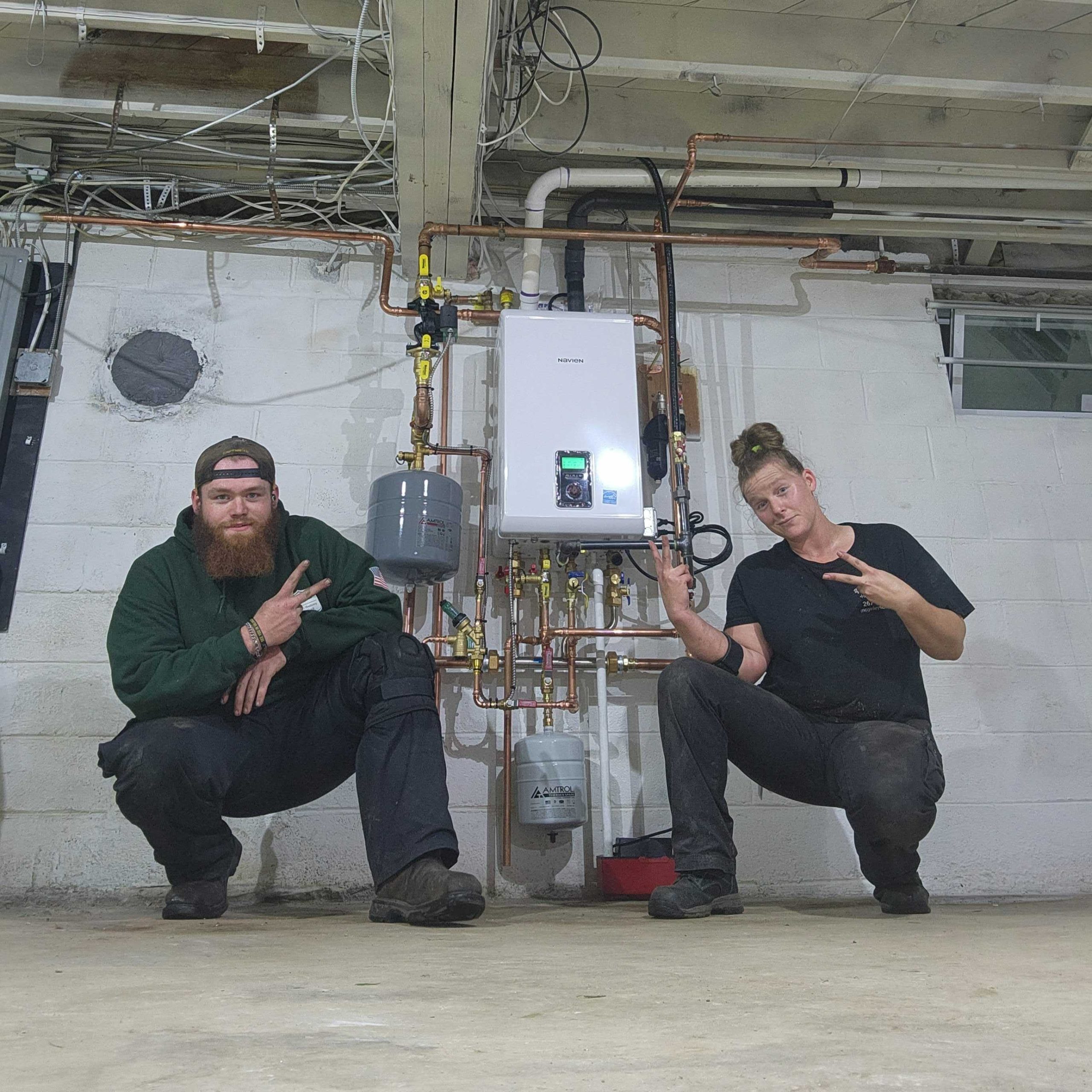
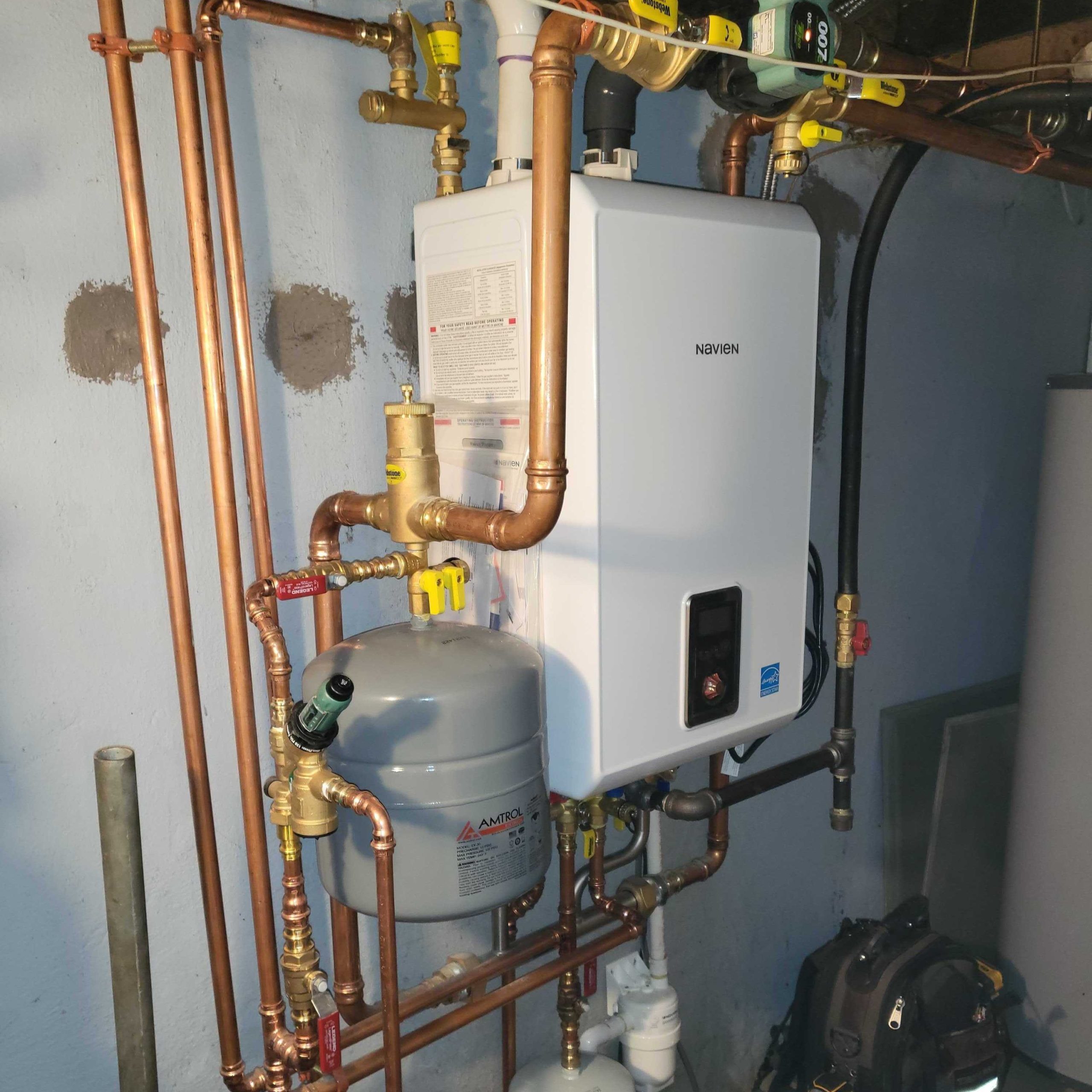
The Shift to Electronic Ignition in Modern High Efficiency Gas Boilers
It’s essential to recognize that many new heating systems have implemented intermittent electronic ignition, removing the need for a continuous pilot light. These systems are not just more energy-efficient but also safer with the addition of sensors, safety switches and algorithms to determine operation. If your boiler is on the older side, considering high efficiency boiler repair and replacement options would be a wise choice.
Relighting Your Gas Boiler’s Pilot Light: A Step-by-Step Guide
Should you decide to turn off your pilot light over the summer, here’s how to relight it:
- Find the Instructions: Check your boiler for a label with specific lighting instructions.
- Safety First: Lower the thermostat and shut off the boiler’s electric supply.
- Access the Pilot Light: Remove the access panel if necessary.
- Light the Pilot: Adhere to your boiler’s unique instructions. Typically, this involves pressing a pilot light button while igniting the pilot with a match or lighter.
- Inspect the Flame: A properly lit pilot light should emit a steady blue flame. If the flame is yellow or orange, it’s advisable to seek professional boiler repair.
- Reassemble and Restart: After lighting the pilot, replace the access cover and restore the electric and thermostat settings.
If your pilot light is not staying lit there are quite a few reasons for this outlined here.
Time for Boiler Repair or Replacement?
Summer is also a prime time to evaluate your boiler’s condition. Frequent breakdowns, strange noises, or inefficiencies are indicators that it may be time for a boiler repair or replacement. Upgrading to a newer model, especially one with electronic ignition, can be more energy-efficient and cost-effective in the long term. It’s an investment in your home’s comfort and safety.
Wrapping Up: To Turn Off or Not?
Deciding whether to turn off your gas boiler pilot light in summer is not just about energy savings; it’s about assessing the overall health and efficiency of your heating system. If you’re uncertain about the best course of action for your home, or if you’re considering a transition to a newer, more efficient system, McGinley Services is here to assist. Our expertise in boiler repair and replacement in Delaware County, PA, positions us uniquely to address your heating needs with precision and care.
Regular maintenance and informed decisions about your heating system lead to long-term benefits. Whether it’s a simple question about your pilot light or a comprehensive plan for boiler replacement, McGinley Services is your trusted partner for all your heating needs. Get an estimate online to replace your boiler for free.